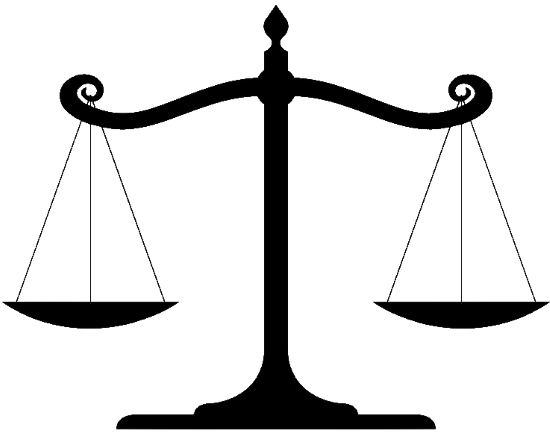
The relationship between the landlord and tenant would arise where the owner of a land (that is the Landlord) or landed property would confer on the tenant the right of exclusive possession for a term of years as agreed between them. The relationship will, in most times, arise as a result of a contractual agreement between.
The law is to provide a regulatory means of coordinating human relation, protect each party’s interest and security of lives and property. In the landlord-tenant relationship, the Landlord has high bargaining power than the tenant. Thus in Lagos state, the Lagos state Government enacted the Tenancy law of Lagos state 2011 to regulate the interaction and relationship of LANDLORD –TENANT, the rights and the obligation of each parties under the tenancy agreement, termination of a tenancy agreement and other related matters.
However it is important to note that the provision of the tenancy law of Lagos does not apply to all premises in Lagos. The excluded premises are: residential premises owned or managed by an educational institution for its staff and students, residential premises provided for emergency shelter, residential premises in a care or hospital facility, in a public or private hospital or a mental facility, and/or one that is made available in the course of providing rehabilitative or therapeutic treatment. The law also does not apply to areas such as: Apapa, Ikeja GRA, Ikoyi and Victoria Island.
According to Section 6(1) of the tenancy law of Lagos state, there are certain rights and privilege that tenant would enjoy upon residing in a premise. The rights of a tenant include: right to privacy, freedom from unreasonable disturbance, right to exclusive possession of the premises and the use of common areas for reasonable and lawful purposes and right to be duly serve quit notice in accordance with the law.
A tenant is expected to stay in the premise for the duration of years or months as agreed in the tenancy agreement. He stay in the premises as a result of the contract between himself (that is the tenant) and the landlord and thus become a contractual tenant. However when the term of years as contained in the contract expires, the tenant is expected to vacant the premises. Under common law, the tenant becomes a trespasser. However there was statutory intervention to protect a tenant that is still in occupation even after the end of his term.
A number of landlords would want to evict a tenant who is holding over possession of premises. They sometimes, result in self-help without following the provision of the law. However Statute provide that any tenant holding over a premises is not a trespasser but a statutory tenant. Thus such tenant cannot be evicted through self-help except in accordance with the provision of the law conferring such protection on the tenant. This is because the right to hold over possession was a function of the statute and not contract.
According to the court in ODUYE V. NIGERIA AIRWAYS LTD (1987) 2 NWLR (part 55)pg 55,a statutory tenant is an occupier who, when his contractual tenancy expires holds over, continues in possession by virtue of special statutory provisions and holds the land of another contrary to the will of the other person who strongly desires to turn him out). A squatter or a trespasser does not qualify as a statutory tenant and cannot claim the protection under the statute.
The Lagos state tenancy law 2011 provides that parties can provide for how to a notice to quit can be given in the tenancy agreement. However where there is no such provision in the tenancy agreement, Section 13 of the tenancy law of Lagos will come to play. It provides that
Where there is no stipulation as to the notice by either party to determine the tenancy, the following shall apply-
*A week’s notice for a tenant at will
*One (1) month’s notice for a monthly tenant
*Three (3) months’ notice for a quarterly tenant
*Six (6) months’ notice for a yearly tenant.
Where the tenancy is for a fixed period (e.g. one year) and such period has expired but the tenant refuse to give up possession, if the landlord intends to recover possession, he shall serve a seven (7) days written notice of his intention to apply to recover possession. It is important to note that notice must be serve personally, that is service when handed to the tenant in person or by courier to the address or posting same of a prominent part of the premises.
Upon the expiration of the 7-days grace ,if the tenant did not give up possession, the landlord may file a claim for the recovery of possession against the tenant in the magistrate court or high court where the premises is located.
However, sub section (2) of Section 13 provides for when a tenant is in arrears. Further provides that in the case of a monthly tenant, where the tenant is in arrears of rent for 6 months, the tenancy shall lapse, in other words, there would be no need for a land lord to issue a notice to quit. What will be issued is a 7-days’ notice of owner’s intention to recover premises. This also apply to quarterly and half-yearly tenancy where the tenant is in arrears of rent for one (1) year.
A statutory tenant will remain in possession as a result of the protection conferred on him by the law. However he is still expected to perform his obligation under the original tenancy agreement. The measurement of damage payable to the landlord is not based on the previous rent but with regards to the amount which is a reasonable satisfaction for the use and occupation of the land based on the prevailing rent in the locality.
In conclusion ,a tenant who is holding over is protected by law and the Landlord cannot through self help evict the tenant except in compliance with the provision of the law.